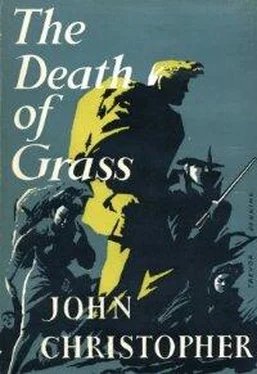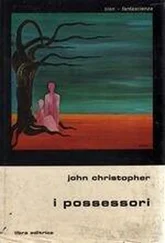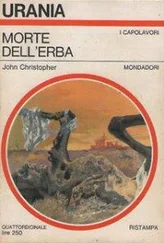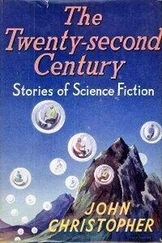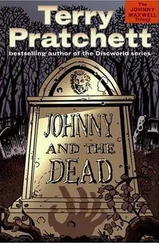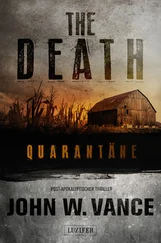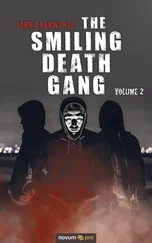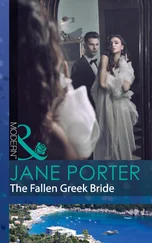It occurred to him that his show of force could have been tactically an error. Two or three rounds, instead of seven, might have been more likely to put them on the retreat Pirrie might… Pirrie, he remembered, was somewhere outside, enjoying his nuptials.
The children must have all awoken by now, but they remained quiet. He heard someone coming downstairs. Roger called to him softly:
“Johnny!”
He kept his eyes on the garden. “Yes.”
“What next?” There’s one fellow standing out like a sore thumb from up there. Can we start knocking them off, or do you want to give them a chance to blow?”
He was reluctant to be the one to open the firing again. They knew his strength now. Further firing would be an expenditure of valuable ammunition with no prospect of any practical benefits.
“Wait,” he said. “Give it a little longer.”
Roger said: “Do you think…?”
In the moonlight a shout rose: “Gi’e it ’em!” John ducked automatically as a volley of shots slammed against the house with a shivering protesting crash of splintered glass. From above he heard one of his own men reply.
He called to Roger: “All right. Get back upstairs, and tell them to use their discretion. If that gang change their minds and decide to pull out, let them go.”
This time one of the children had begun to cry, a frightened piercing wail. John felt far from optimistic as to the prospects of the attackers pulling out. They had presumably weighed the considerations as he had done, and decided their best chance lay in pressing the attack home.
While the new lull held, he called out into the garden:
“We don’t want any trouble. We’ll hold our fire if you clear off.”
He had taken the precaution of first flattening himself against the wall beside the window. Two or three shots thumped against the far wall of the room in answer. A man laughed, and he fired the revolver in the direction of the laugh. There was a rattle of sporadic fire, either way.
Watching intently, he saw a figure heave up out of the shadows, and fired again. Something sailed through the air, hit the side of the house, and dropped, not far from the window at which he and Joe Harris stood.
He shouted: “Down, Joe!”
The explosion shattered what glass was left in the window panes, but did no other damage. A rattle of fire issued from the house.
Grenades, he thought sickly—why had the possibility not occurred to him? A fair portion of the guns that were now scattered throughout the countryside had originated in army barracks, and grenades were obviously as useful. For that matter, the men themselves had very possibly been soldiers; their present unconcern had a professional air to it.
Without any doubt, grenades tipped the scales against the defenders. A few more might miss, as the first had done, but eventually they would get them into the house, silencing the rooms one by one. The situation had suddenly changed its aspect. With the valley so close, he was facing defeat, and death, almost certainly, for all of them.
He said urgently to Joe Harris: “Get upstairs and tell them to keep as continuous a fire on as they can. But aiming—not popping off wildly. As soon as they see someone lift his arm, slam everything at him. If we don’t keep the grenades out, we’ve had it.”
Joe said: “Right, Mr Custance.”
He did not seem particularly worried; either because he lacked the imagination to see what the grenades meant, or possibly owing to his faith in John’s leadership. Pirrie had done a good job in that respect, but John would have exchanged it for Pirrie beside him in the house. If any of the others scored a hit, under these conditions, it would be by a fluke; Pirrie would have picked off the vague moonlit shadows without much difficulty.
John fired again at a movement, and his shot was reinforced by shots from upstairs. Then from outside there was a swift concentrated burst directed towards one of the bedroom windows. Simultaneously, from another part of the garden, an arm rose, and a second grenade was lobbed through the air. It hit the side of the house again, and went off harmlessly. John fired at the point from which it had been thrown. There was a scatter of shots in different directions. In their wake came a cry which cut off half-way. The cry was from the garden. Someone had claimed another of the attackers.
It was encouraging, but no more than that It made little difference to the probabilities of the outcome. John fired another round, and dodged sideways as a shot crashed past him in reply. The people outside were not likely to be discouraged by a lucky shot or two from the house finding their marks.
Even when, after a further interchange of shots, he saw a grenade arm rise again, and then saw it slump back with the grenade unthrown, he could only see the incident as a cause for grim satisfaction—not for hope. Two seconds later, the grenade went off, and set off a riot of explosion that made it abundantly clear that whoever held it had been carrying other grenades as well. There were shouts from that part of the garden, and some cries of pain. John fired into the noise, and the others followed suit. This time there was no answer.
All the same, it was with both astonishment and relief that John saw figures detach themselves from the cover of the ground and run, keeping as low as possible, away down the slope towards the valley. He fired after them, as the others did, and tried to number them as they retreated. Anything between ten and twenty—and with one, possibly two or three, left behind.
Everyone came crowding into the room—the women and children along with the men. In the dim fight, John could see their faces, relieved and happy. They were all chattering. He had to speak loudly to make himself heard:
“Joe! You’ve got another half-hour on guard. We’re doubling up for the rest of the night. You’re on with him now, Noah. Jess will go with Roger afterwards, and Andy with Alf. I’ll take a turn myself with Will. And from now on, raise the alarm first—and start wondering what it might be afterwards.”
Joe Harris said: “You see, Mr Custance, I was hoping they would go on past.”
“Yes, I know,” John said. “The rest of us might as well get back to bed.”
Alf Parsons asked: “Any sign of Pirrie and his woman?”
He heard Olivia’s voice: “Jane—out there…”
“They will turn up,” he said. “Go on back to bed now.”
“If that lot fell over them, they won’t be turning up,” Parsons said.
John went to the window. He called: “Pirrie! Jane!”
They listened in silence. There was no sound from outside. The moonlight lay like a summer frost on the garden.
“Should we go and have a look for them?” Parsons asked.
“No.” John spoke decisively. “Nobody’s moving out of here tonight. For one thing, we don’t know how far those boys with the grenades have gone, or whether they have gone for good. Off to bed now. Let’s get out of this room first, and give the Blennitts a chance. Come on. We need to rest ourselves ready for tomorrow.”
They dispersed quietly, though with some reluctance. John walked upstairs with Roger, following behind Ann and Olivia and the children. He went into the upstairs cloakroom, and Roger waited for him on the landing.
Roger said: “I thought we’d had it for a time.”
“The grenades? Yes.”
“In fact, I think we were a bit lucky.”
“I don’t quite understand it. We were certainly lucky dropping that bloke while he still had the grenades. That must have shaken them quite a bit. But I’m surprised that it shook them enough to make them pack things in. I didn’t think they would.”
Roger yawned. “Anyway, they did. What do you think about Pirrie and Jane?”
Читать дальше
